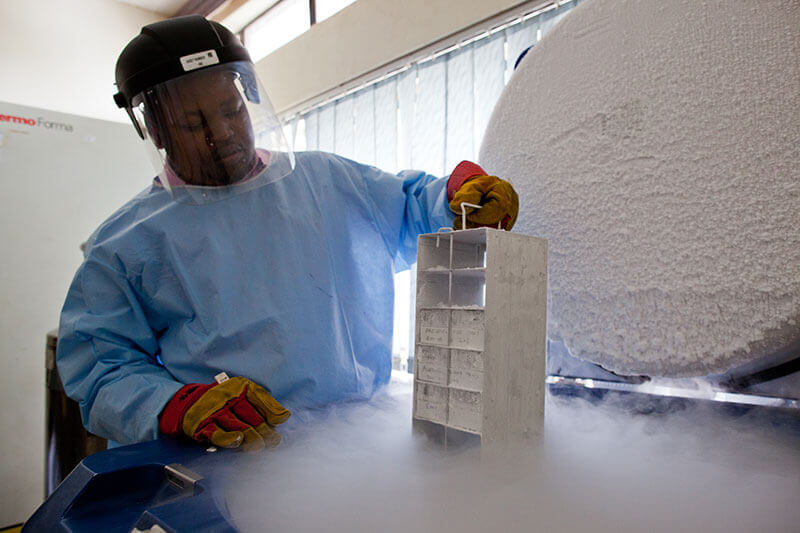Nick TaylorGHTC
Nick Taylor is a senior program assistant at GHTC, where he supports GHTS communications and member engagement activities.
In the past, the United States has contributed to important breakthroughs in global health—from the eradication of smallpox to a 74 percent drop in measles deaths worldwide. Because of longstanding US leadership and support for global health research and development (R&D), Americans and millions around the world no longer live in fear of diseases like polio and measles, and many more are on treatment for diseases like HIV and AIDS and malaria. In fact, the US government is the largest supporter of global health R&D in the world, supporting the development and delivery of vaccines, drugs, diagnostics, microbicides, and devices. However, as we sit at a very important moment in global health product development, the political and economic environment in the United States is causing some to worry. Budget constraints have put funding at risk at many of the federal agencies involvement in global health R&D.

Today, the GHTC launches a new fact sheet outlining the important contributions the US government has made to global health R&D and why it’s critical the United States continues to robustly support the global health research pipeline. There are currently more global health products in the pipeline than ever before—with more than 365 new tools under development as of April 2012. Contributing to the success of many of these products is the US government’s partnerships with nonprofit product developers. These organizations partner with the public and private sectors to maximize resources and create tools for patients in low- and middle-income countries. Increased investments in global health research by the United States have the potential to increase the amount of tools combating global diseases. Just some of the products currently in the research pipeline include:
In the research pipeline for global health products, 200 of the 365 products under development have some sort of US government support. With so much investment from the United States, there is even more at risk if funding is cut. Over the past several years, the US Congress has not been able to agree on a long-term budget for the federal government. Policymakers have allowed sequestration, or widespread automatic budget cuts, to affect all federal programs. These constraints have the potential to push back or halt promising research supported by several federal agencies involved in global health R&D—including the Centers for Disease Control and Prevention, the Department of Defense (DoD), the US Food and Drug Administration, the National Institutes of Health (NIH), and the US Agency for International Development (USAID). Due to sequestration:
For many of the products currently in the global health research pipeline, continuous US support is essential. Without it, much of the breakthrough research that pushed these products to later-stage development will be lost—sometimes forever. US leaders should seize upon the recent successes in global health R&D and pass a long-term budget that ensures America’s legacy as a leader in innovation and science is not forgotten.